
Mastery is peculiar in that spectators see whatever the professional does as ‘easy.’ Masters rarely seem to even break a sweat, whether they’re dancers, authors, or entrepreneurs. What they do seems so natural that it’s easy for us to be fooled into believing we could do the same right off the bat.
Sure.
I recently signed up for a watercolor workshop. Years ago, I dabbled for fun painting in acrylics, but I’ve always heard how watercolor is among the most challenging mediums. With running a business, writing, homeschooling my young son, taking care of my aging mother, etc. I needed a hobby and a time and place to simply chill.
Bwa ha ha ha ha ha ha!
Oh how my Type A personality loves to muck things up. It’s taking everything for me to RELAX, let go and simply give myself permission to be NEW. My teacher has painted thousands of watercolors and is arguably one of the top masters in the country. It takes all I have to not compare my rookie attempt to his version he seems to produce without even having to actually focus.
***A skill earned through many years, countless of hours of practice, and training.
Same with authors. With the pros? Their stories flow, drag readers in like an unseen riptide only to release the exhausted and elated audience at The End.
Mastery, to the casual observer, appears seamless and effortless.
Everyone Begins Somewhere

My very first watercolor. A pigeonnie…or a mushroom house for fae, LOL.
I’d like to offer a glimpse of what the journey from N00b to Master is really like so you can set expectations accordingly. This will keep you pressing, and from being too hard on yourself. First and foremost, it’s vital to relax and keep reminding yourself that your journey has only just begun.
Many of us decided to become writers because we grew up loving books. Because good storytellers are masters of what they do, it’s easy to fall into a misguided notion that ‘writing is easy,’ which explains the mountains of crappy ‘published novels’.
It also explains why non-writers can so easily dismiss what we do. As if the only thing keeping them from turning out the next Game of Thrones is ‘finding the time’ and not a matter of a crap ton of training and work.
Granted there are a rare few exceptions—the born ‘genius’—but most of us will go through three acts (stages) to attain mastery in this career…if we stick it through.
Act One: The Newbie
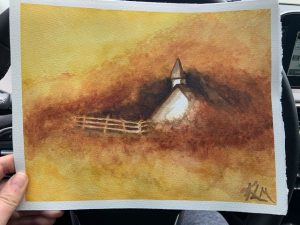
My SECOND watercolor. The back of a church in autumn. Yeah….
It’s far easier and less painful to show you my first watercolors than to torture y’all with my first attempts at writing.
The Newbie Phase is FUN! This is when we are brand new. We’ve never read a craft book and the words flow. We never run out of words to put on a page because we are like a kid slapping watercolor paints everywhere making ‘art’…and a mess. We aren’t held back or hindered by any structure or rules. Unworried about light, symmetry, technique, it’s easy to feel alive, brimming with energy and passion.
But then we have our first real writing critique and hear words like ‘POV,’ ‘character arc,’ and ‘narrative structure.’ Critique members return samples of our opus hemorrhaging red ink. It’s in this moment, we learn maybe we’ve not yet achieved mastery.
In fact maybe, just maybe we’ll see we don’t know as much as we think we do. Also *winces* we might become aware we are not so ‘naturally gifted’ that we get to skip all the training and the hard stuff.
This is writing, not a theme park. There are no instant passes to the front of the line.
It’s during this period we might also grow keenly aware of why so many famous authors drank…a lot. Or went crazy.
Act Two: The Apprentice

The Apprentice Phase comes next. This is where we might read craft books, take classes, go to conferences and listen to lectures. During the early parts of this phase, books likely will no longer be fun. Neither will movies. In fact, expect most of your family to ban you from ‘Movie Night.’ Everything now becomes part of mastery training. We no longer look at stories the same way.
The Apprentice Phase is tough, and for many of us, it takes the all the fun out of writing. The Apprentice Phase is our Act II. It’s the looooongest, but filled with the most growth and change.
It’s the span of suck before the breakthrough.
There is a darn good reason WHY not everyone can do what WE DO.
If Mastery is TOUGH, Writing is Tougher
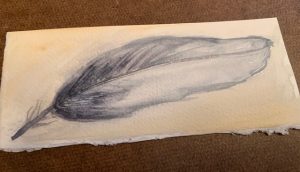
Yes, I practiced feathers for two hours.
Many new writers will shy away from craft books because they fear ‘rules’ will ruin their creativity. Truth is? They will totally ruin our creativity, but only for a little while 😉 .
It isn’t permanent. Give yourself a bit of grace.
Eventually we realize that rules were made to be broken. BUT, the difference between the artist and the hack is that the artist knows the rules and thus HOW to break them and WHY and WHEN. We start to see rules as tools.
This is why it is absolutely essential for authors to READ everything we can get our hands on. Read everything in your genre and even out of it. The more you read the more colors and techniques you add to your creative palette.
Then APPLY this and PRACTICE. Learn from others about mastery and follow the paths they’ve already forged until you’re skilled enough to set out on your own. Repetition and refinement are essential for improvement. We’ll never attain mastery without the ‘drudgery.’
For instance, I was pretty tired yesterday after my art class. I’d already edited at least 150 pages this week (the final line-edits for my ghostwriting project). My brain needed a rest, but no reason that could be active rest. I took scraps of watercolor paper and simply practiced.
I painted leaves, feathers, fish, kelp, branches, whatever would fit on a small square of paper. They suck. There is nothing fancy, sexy or exciting about leaves, feathers and fish. But I need to practice the simple if I ever hope to learn anything complex. I’m new. I’m learning how to chill out and enjoy the rote, ‘un-fun’ aspects of learning something different.
This early joy is too often missing in the modern publishing paradigm. We believe our first attempt at writing a novel should rival what took other authors decades to master. If our first attempts aren’t making us multi-millionaires, then we’re a failure.
In what other profession would this thinking make ANY sense? Doctors ‘practice’ medicine. Attorneys ‘practice’ law. Our culture acknowledges that a junior attorney or new doctor might have fresh insight, but that their skills will only improve with time because time hones raw skill into the sharpened blade of instinct.
No one expects a painter’s FIRST painting to make them a legend, so ease up on yourselves. Learning will go much faster if we’re having fun.
Learning FLOW
Some of you may know I practiced Brazilian Jiu Jitsu for years. One exercise we did to improve our skills was to grapple blindfolded. The trick was to not get fixated visually, but to be able to feel what our opponent was up to, where he was headed and move like water. By being relaxed, it made it next to impossible for an opponent to sink in the hold, choke, arm bar, whatever.
Wherever our opponent was headed, we were already two steps ahead by FEEL. THAT is how sensitive you want to become in Jiu Jitsu…and in writing.
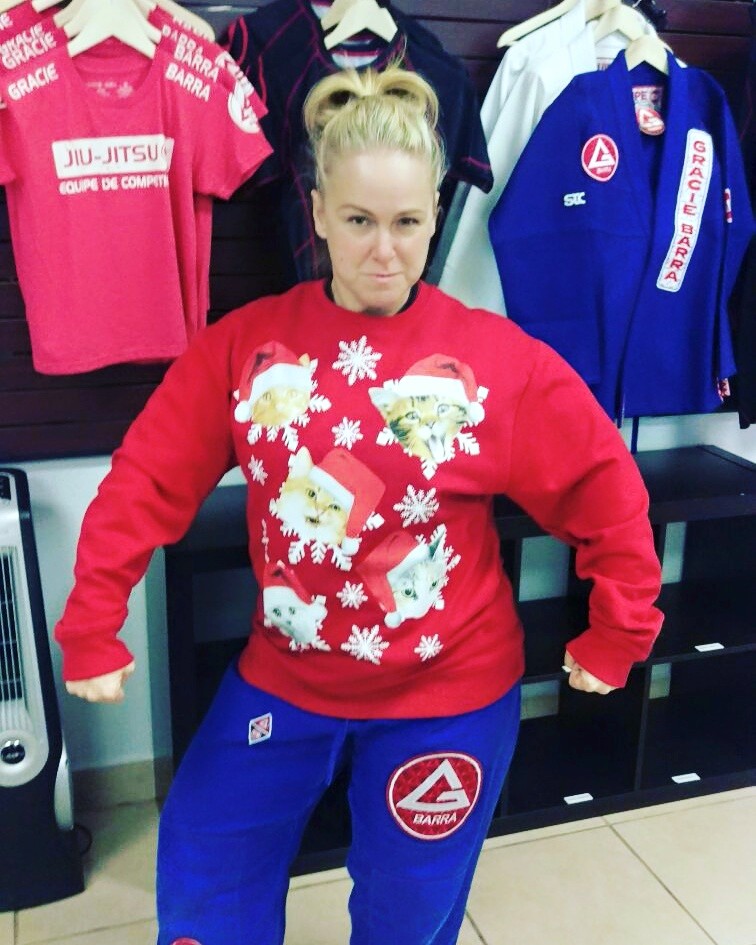
We want to become so immersed that we can do this stuff blindfolded. We instinctively feel what needs to happen where without having to say ‘Oh, this is a scene, and this is a sequel.’
As we move through the Apprentice Phase and we train ourselves to execute all these moves together—POV, structure, conflict, tension, setting, description, dialogue, plot arc, character arc—it eventually becomes easier. In fact, a good sign we are at the latter part of the Apprentice Phase is when the rules become so ingrained we rarely think about them.
We simply write.
Mastery Has a ‘Feel’
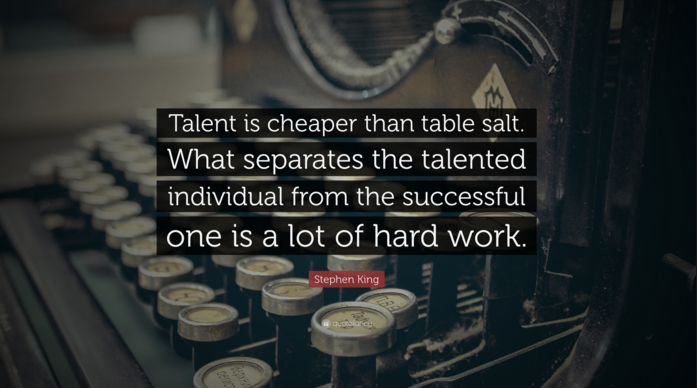
We’ve read so much fiction, watched (and studied) so many movies, read so many craft books, heard so many lectures, and practiced so much writing that all the ‘rules’ are now becoming instinct and, by feel, we are starting to know where and how to bend, break or ignore them.
Like anything, there is NO substitute for DOING. Watching Holly Holmes videos is a good idea for understanding ground-fighting, but it can’t take the place of mat time. Reading, taking classes, studying cannot replace writing crap until we don’t write crap anymore.
At the end of the Apprentice Phase, writing is now starting to become fun again. Kind of. Like the fighter who instinctively knows to arm bar an opponent without conscious thought, the artist who intuitively knows how to use light, authors nearing the ‘mastery’ level now find more and more of the ‘right’ words and dramatic timing without bursting brain cells.
The trick is sticking it through the Apprentice Phase long enough to engrain the fundamentals into the subconscious. This is how we get ever closer to mastery.
Master
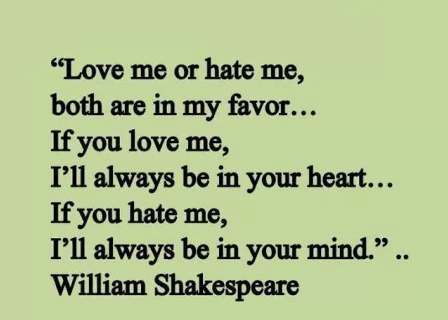
This is where we all want to be. We all want this on Day One, but sadly, I believe this Day One Master is reserved for only a handful of literary savants. Mastery is when we return to that childlike beginning. We write with abandon and joy and, since the elements of fiction are now part of our DNA, our literary marrow, what we produce isn’t the muddled mess of a neophyte. It’s actually a real story worth reading.
Granted, it isn’t all kittens and rainbows. Masters have a lot of pressure to be perpetual geniuses.
I believe most of us, if we stick to this long enough, will always be vacillating between the Advanced Apprentice Phase (Journeyman) and the Mastery Phase. If we choose to try a totally new genre, we might even be back to Newbie (though this will pass more quickly than the first time).
We have to to keep growing. The best writers still pick up craft books, refresh themselves in certain areas, read other authors they enjoy and admire to see if they can grow in some new area. Masters seek to always add new and fresh elements to the fiction.
Simple Steps to Mastery
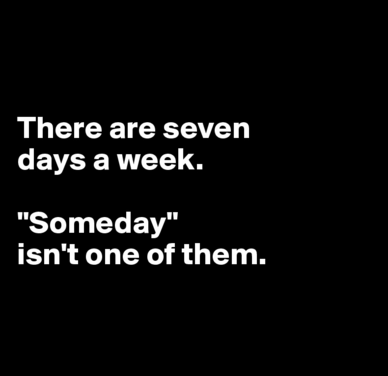
1. Embrace the Day of Small Beginnings—Starting is often the hardest part. Enjoy being new. Enjoy that feeling because you will reconnect with it later because you’ll recognize it.
2. Understand We All Have an Apprentice Phase—We will all be Early, Intermediate, then Advanced Apprentices. How quickly we move through these will be dictated by dedication, hard work and, to a degree, natural talent.
3. No One Begins as a Master and Few Remain Permanent Masters—Every NYTBSA was once a newbie. When we understand this career has a process, it’s easier to lighten up and give ourselves permission to be imperfect, to not know everything. Many writers get discouraged and give up too soon because they don’t understand there is a process, and they believe they should be ‘Masters’ right away.
Hey, I did.
We need to give ourselves permission to grow. If we love and respect our craft, we will always be learning, so we will continue to dip back into ‘Apprentice’ to refine our art even further. We might read older works of literature, explore other genres, write a genre we never cared for to test ourselves.
What Are Your Thoughts?
Does this make you feel better to know this career has a process? Are you in the Act II span of suck and getting weary? It is okay, REALLY! It’s natural. What are you doing to remain focused? Which part has you the most discouraged? Write with the abandon of the Newbie then edit with the eyes of an Advanced Apprentice or Master 😉 .
I love hearing from you and am not above bribery!
What do you WIN? For the month of MAY, for everyone who leaves a comment, I will put your name in a hat. If you comment and link back to my blog on your blog, you get your name in the hat twice. What do you win? The unvarnished truth from yours truly. I will pick a winner once a month and it will be a critique of the first 20 pages of your novel, or your query letter, or your synopsis (5 pages or less).








23 comments
2 pings
Skip to comment form
Hello Kristen: Thank You for a perfectly timed post. A good friend and I both have the writing bug. The difference is that I work at it almost constantly and as you indicated, time and effort pays off. Regretfully, my friend seems to always have an excuse Not to put words to paper, so to speak. It has caused some friction in our very long friendship. I get weary and think about giving it up, not so much for the friendship but what is the point -the end game? Yet my mind, my soul, keeps pushing me back to the keyboard. Thanks for explaining the process and what you went through, It was very helpful.
Well said. Makes me so sad…
Thanks for reality, Kristen!
Congratulations on your brilliant fae mushroom house. The first illustration for Kristen Lamb’s high fantasy graphic novel?
You’re newsletters are great! Always so thought provoking. I so agree with you! It is freeing to understand we don’t have to be perfect in the beginning (or ever). Keeping the apprentice mind-set takes so much of the pressure off!
Michelangelo said, “If people knew how hard I had to work, they wouldn’t think I was so great.”
Thank goodness I didn’t know how hard it was to write a novel. That didn’t come until after I’d established my daily writing schedule and stuck to it for almost a year. This, of course, was the newbie phase you mentioned, where writing was fun and the words flowed effortlessly. After finishing the manuscript, I felt a sense of accomplishment, but then, quite suddenly, a realization fell on me like an avalanche. “THE MANUSCRIPT IS AWFUL.” This also came with the awareness of why: NO character arc, tedious, flat, moronic dialogue, a ridiculous amount of head hopping, no narrative structure, and what’s a POV? Actually, I didn’t know the terminology back then, but I could see the problems.
I considered my options: 1. Go on a crying jag, 2. Scream myself hoarse, and (the one I went with) 3. Go back to the computer and keep writing. Because I’d gained something in the process that I hadn’t had when I started: the WILL to write. It felt like a rising force within me and I would need that to face the hardships to come.
Also, Kristen, I majored in painting (a very long time ago), and the samples of your early artwork were fantastic. Truly. They show incredible strength and feeling. Especially the church. The mood you created was powerful.
Thank you again for another great blog!
I get what you are saying. I was a master in my trade and profession before I was injured and forced out. You never stop learning, never stop reaching, expanding, asking why and how. I’ve done watercolor for 50 years, I’m good at it, I’m still learning. I’m writing my 7th novel, I still read craft books. I go to critique groups and look at other’s work to improve my own. I’ve played guitar all my life and I study it more now than ever. Mastery is an attitude. It is understanding and applying concepts in practice. One must know the craft inside and out and never have an ego about it no matter the craft. Ego kills progress. Humility is the master’s secret weapon.
Thanks, Kristen! This came at a very good time for me. Am in the apprentice stage, and wondering if I’ll ever get out! Just got more critical feedback on my WIP, and started the day deflated. Your post helped put it in perspective.
I don’t remember ever going through the “happy child” phase where everything just flows out pell-mell and it’s buckets of fun. But I do remember the “I can tell this sucks but I don’t know how to change that” phase. Glad those days are gone!
Kristen, your timing on this is spooky. A couple weeks ago, I scrapped my plot and the 100k words of the incomplete draft. *sob* Since then, I’ve been beating myself up, thinking, “I should be getting this by now.” Today, I picked out a book on outlining from my ever-expanding TBR pile. And slowly, the clog in my creative pipes is clearing. You might think your timing was “too late”, but I don’t think I was ready to ‘hear’ it before today. Your post was like the universe telling me, “Atta girl!”
Kristen, I needed this article at this point in my apprenticeship. I think I read somewhere that it takes about a million words on the page before you master writing skills–and plenty of books on craft and critiques while doing so. Time, effort, and perseverance are what makes successful writers. Thank you for reminding me of that!
I thought my first book was so good. I cringe now when I think of all the people who read it the way it was. You’ve been a beacon through it all. And I think all of your drawings are amazing, even your mushroom house for fae. 🙂
Thanks for this timely reminder. My current WIP is a story that’s been buzzing around my head for years, and I decided to just write and not worry about whether it’s any good. That will come after I’m done! But it’s practice for when I want to write a story with magic in its heart, and the discipline of regular writing.
I have no writing to critique, but just wanted to let you know how much I enjoyed reading this post.
You wrote, “I’d already edited at least 150 pages this week,” and my editing brain went… wah… what? It can take me 3 days to edit 10 pages. They take just a few hours to write, but editing is the hard work. The nitty gritty, grind, grind, grind. Maybe it’s my perfectionist streak. I like the end result, but hate the process.
Author
Don’t pick on yourself. I am adding in all the line-edit corrections from another editor. This isn’t content edit which takes me WAY LONGER. It’s punctuation, word echoes, grammar, etc. Yes, the process is tough. Even now I have been working on this book for ages and I am SO READY to be doing something else. SO close to the finish line but not quite there. I know almost every book I have written I never wanted to read ever again by the time it was in print.
Kristen, needed this – feeling a bit bogged down at the apprenticeship phase right now! Thanks
It can be disheartening too when people around you think that it’s easy and want to know *fingersnap* when that novel is coming out. Just like that. Totally ready to publish as soon as your words hit the page, so why is it taking so long?
This is a helpful reminder, Kristen. Thanks for this. And nice feather.
Wow, this is a great article (as always) but strangely, I started “arting” during the pandemic too. Your first attempts are more sophisticated than mine by far! Keep painting!
This was great! It really put becoming a writer into perspective! I’ve only recently decided I wanted to be a writer after a couple of decades of not knowing what I want to do with my life, so now that I finally know, I just want to be there! But it does take time and is a skill I have to continue to work at and eventually will pan out into a full fledged career. So thanks for the inspiration!
Oh that apprenticeship phase. I had my first short story published when I was still at school, fifteen and published in “New Worlds” (the premier Science fiction magazine at the time). Despite numerous submissions (all turned down) I was twenty eight when the next was published. I decided to write a novel instead. In fact I wrote seven before I found a publisher and I was then forty. Luckily it was moderately successful and I got a contract for another but it did not sell at all. I was dumped, 48 before my second novel (I had written fourteen novels by this time and so many short stories they would have shored up the Kontiki and Ra expeditions with no need for papyrus) was accepted. Lol so that apprenticeship phase was only around thirty seven years before I really started to earn money from my books and stories. I should have been a doctor – they have it easy.
My fear is that I may be like some of the “singers” auditioning for American Idol. You know, the ones who think they’re great singers, but they’re really William Hung.
Author
That’s when you get people you trust to be honest but thoughtful about your work. I have been wrapped up in a ghostwriting project for the past year so haven’t been teaching and editing. It’s all I could do to keep blogging. But I have turned in the final edits so will likely resume course. Keep checking in (maybe subscribe if you haven’t already) to see when I put up my specials. I offer to read and do a deep critique of anywhere from your first 10-50 pages. I can tell everything that is right or wrong in first 20 pages and how to fix it. I call it my “Write Stuff Special.” It’s super affordable and will give you a pro perspective on where you excel, what you might need to work on and how to do all that.
I had to pay a professional when I was new because all my friends and family were too nice.
[…] CONTINUE READING HERE […]
[…] Suddenly this super fun activity transitioned into a serious brain-bender. I go into more detail on this in my post The Writer’s Journey: From Total Newbie to the Joy of Mastery. […]